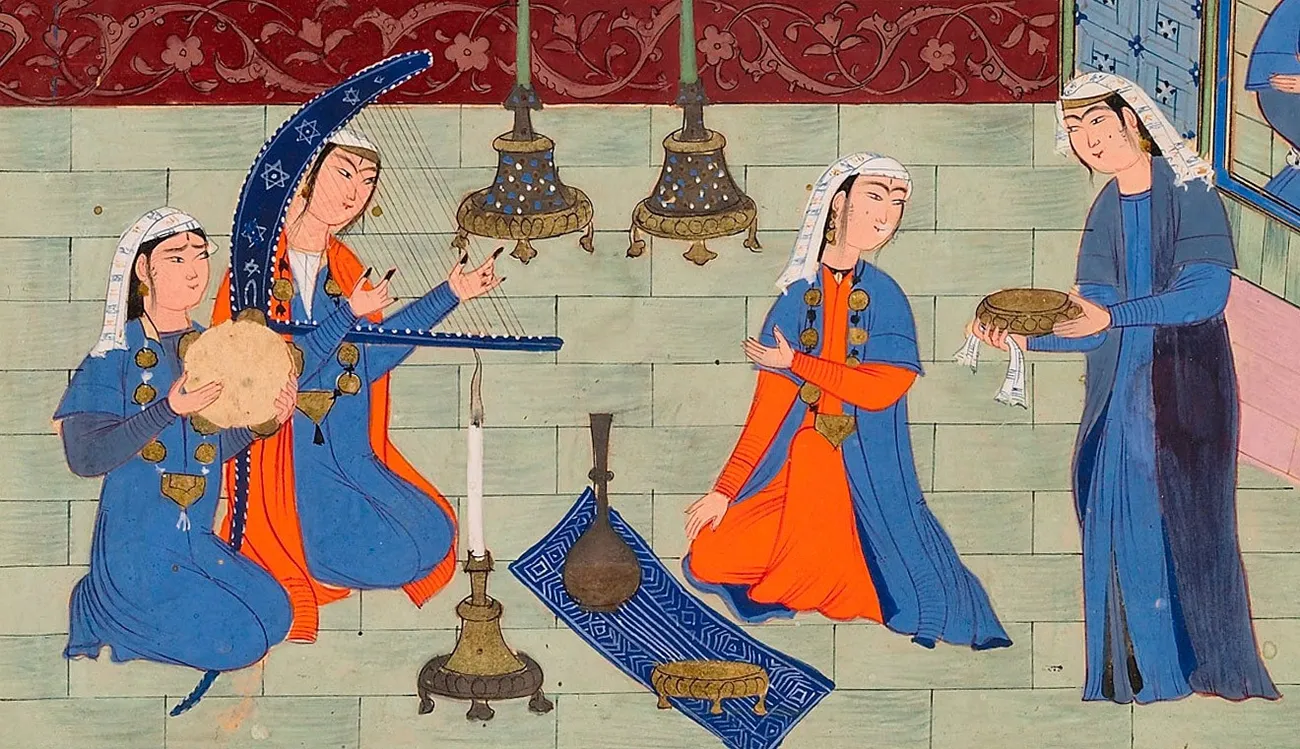The culture of music listening was quite high, although this did not relegate this activity to mere entertainment: listeners strove to immerse themselves in a deeply emotional and aesthetic experience in all its varied colors and shades. The contemporaries of that period recorded numerous examples of similar attitudes to music. A solid knowledge of music was considered an advantage for anyone, regardless of social status or profession, while a lack of it was a sign of ignorance and deprived upbringing. Education was incomplete without music, and an individual who failed to study it was incapable of reaching perfection.
We know that Alisher Navoi reproached the poet Bina’i for his lack of musical erudition. Here is what Zahir al-Din Babur says on this denunciation: “At first Binai was ignorant of music, and they say that for this reason Alisher-bek reproached him”. The poet was thus forced to fill this gap. Out of all the people mentioned by Zahir al-Din Babur who had some relation to music, roughly half were not professional musicians. Zahir al-Din Babur kept a staff of musicians and, by his own admission, from time to time composed musical works (in particular, sawt or saut in Chargah maqam), and even wrote his own scientific treatise on music.
You can learn more about the topic in the book-album "The Musical Legacy of Uzbekistan in Collections of the Russian Federation" (Volume VI) from the series "The Cultural Legacy of Uzbekistan".
The general sponsor of the project is the oilfield services company Eriell-Group.

